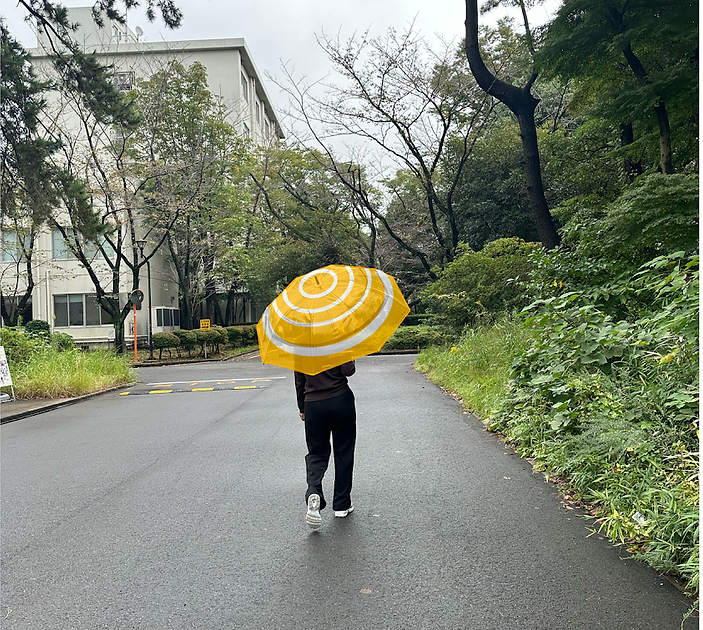Go Umbrella 1
The majority of Americans are unprepared for natural disasters and show a lack of interest in preparing due to the cost of buying and storing products that may never be used, and time spent preparing for something that might not happen. By creating a family of highly functional everyday goods with secondary safety features, I can help people be more prepared for natural disasters without asking the user to actually do much preparation.

Understanding the Problem
Nearly three in four Americans are unprepared for natural disasters and lack the willingness to actively prepare, deterred by:
$
Not wanting to buy a product they might never use
Not wanting to spend time preparing for something that might never happen
?
Not knowing exactly how to prepare because natural disasters are unpredictable
Go Umbrella 1 Research
During my Masters Program I attended a disaster preparedness product workshop in Chiba Japan. In the workshop, I worked collaboratively with a group of other students and focused on how to help people in urban areas survive a storm like Hurricane Sandy, which hit New York in 2012.
New York's sturdy urban architecture is more susceptible to flooding than to wind damage, so I began thinking of how an umbrella could be reimagined with a lens toward survival rather than just basic rain repellence.
Hurricanes
Flooding
Drowning
Water Damage
Evacuation
Water Contaminated
Power Loss
Navigation Issues
Danger of being trapped
Key documents ruined
Quick way to evacuate
Sickness & health issues
Can last 2-3 days
Dangerous debris
Flotation device
Waterproof containers
Go-bags
Way to filter/test water
Radio, back-up power, lights
Ways to 'feel' debris in water
Project Goal
Design an umbrella that helps people 1. Understand if they can evacuate or shelter in place; 2. Navigate during a flood; and 3. Allow rescuers to know where to find them.
Ideation
Initial Explorations


Concept Renderings

Removable whistle to alert rescuers is attached to umbrella to prevent accidental loss
Ultra bright LED light is easily seen by rescuers, provides navigation, and uses very little power
Registered markings help users to gauge water depth; reflective material on canopy is easily seen by rescuers at night


Reinforced shaft provides strength in wind and for use as a walking stick

